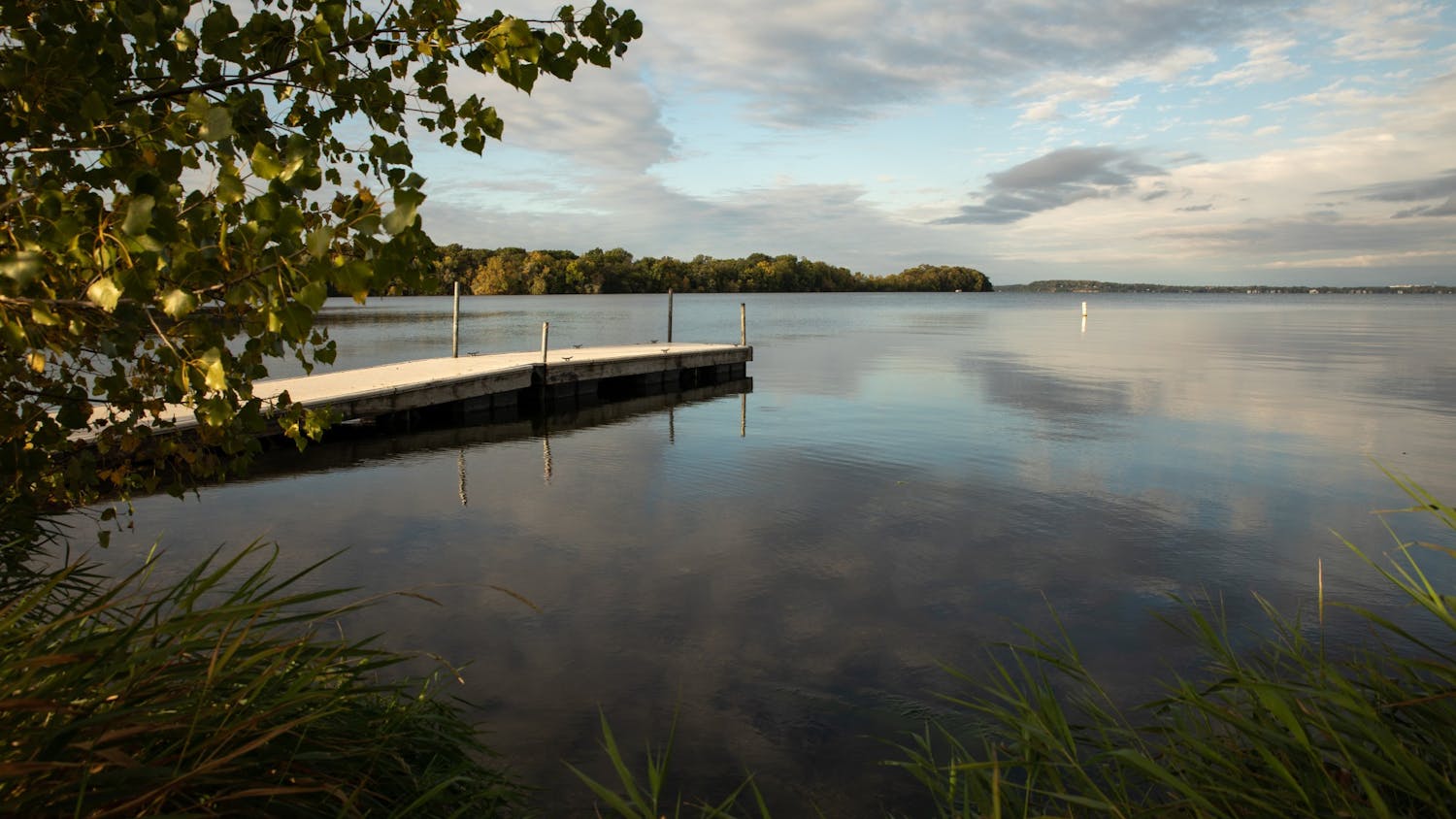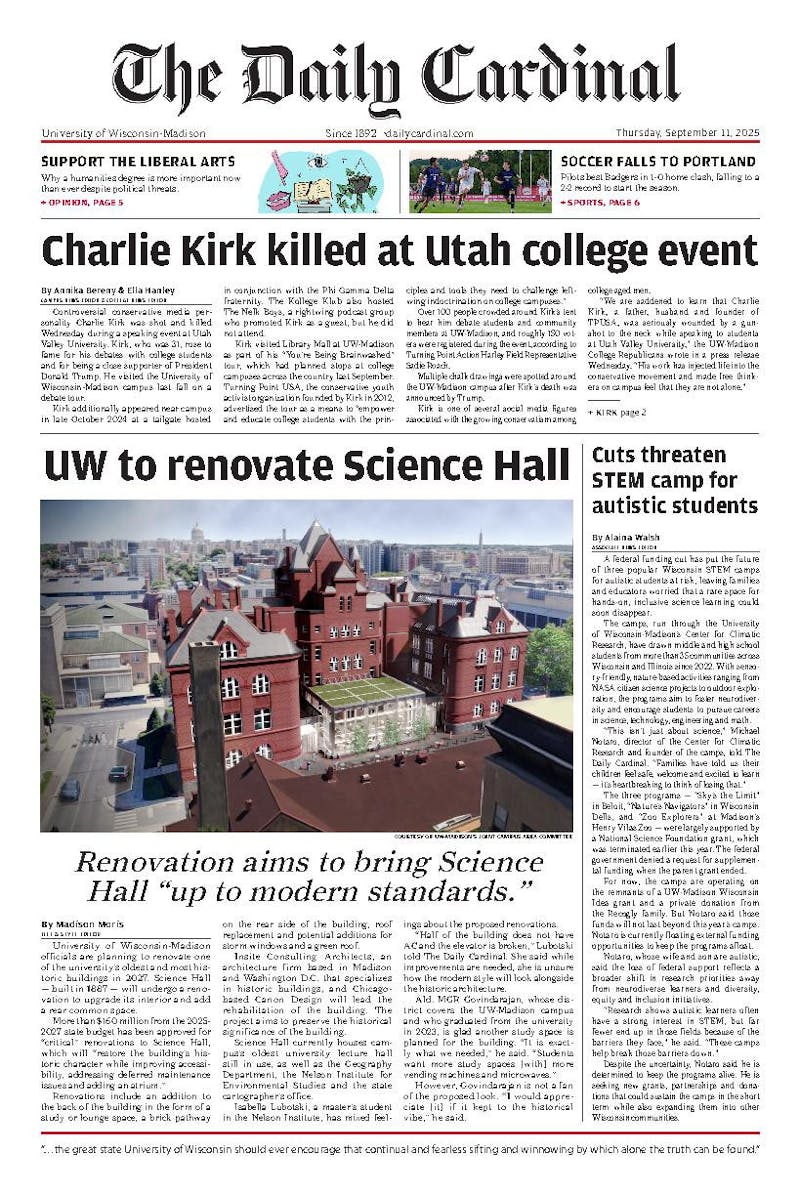The legal battle over Enbridge’s Line 5 oil pipeline moved to Madison in a multi-week hearing beginning Sept. 3, with experts and individuals voicing opposition over long-term wetland devastation while supporters stressed the project's economic benefits.
Clean Wisconsin, along with other Midwest environmental groups, challenged the Wisconsin Department of Natural Resources (DNR), questioning if state laws were followed when issuing permits in November to allow Enbridge Energy, a Canadian pipeline company, to re-route 41 miles of their Line 5 pipeline through northern Wisconsin.
“Line 5 at this location puts the health of the river, wildlife, Bad River sloughs, Bad River community and Lake Superior at risk for the catastrophic and irreparable harm from an oil spill if it was to be exposed through these natural processes,” a report from Mashkiiziibii Natural Resources Department, an environmental group associated with the Bad River tribe, said.
Line 5 runs from Superior, Wisconsin, to Sarnia, Ontario, passing through several parts of Northern Wisconsin, including its Upper and Lower Peninsula. Enbridge is proposing to reroute the 70 year-old-pipe prone to leaks around Wisconsin’s Bad River tribe.
Line 5 leaked at least 29 times and spilled more than a million gallons of oil into the environment over the last 50 years, according to Clean Wisconsin.
In the coming week, an administrative judge will review evidence and public testimony to determine if Enbridge Energy can move forward with the proposed construction plan.
Opponents say they are concerned the proposed re-route poses a significant risk to Wisconsin’s waterways, land and natural resources. According to Clean Wisconsin, Enbridge would have to cut across nearly 200 waterways, clear trees, blast through bedrock and fill wetlands during construction.
Geologist Joseph Bonin testified Monday, criticizing the DNR’s assessments of the risks of construction on groundwater and water resources. He said the DNR inadequately surveyed the site when it issued permits, and Enbridge had missing or confusing data.
“Blasting is going to have a larger impact than the expert reports discussed and the reason for that is the already fractured bedrock was not taken into consideration in the reports,” Bonin said in his testimony Monday. “The effects of blasts, especially on fracture networks, may be permanent."
Along with experts, members of the public testified at the hearing.
“In the long term, this would look like crude oil spills that could contaminate the entirety of the watershed within a matter of hours, threatening the health and lives of all beings,” Tabitha Faber, a graduate student studying Plant and Agroecosystem sciences at the University of Wisconsin-Madison said.
She also said the pipeline will threaten the sovereignty of protected tribal lands and pose risks to endangered species, adding that the construction would force species to re-locate, accelerating erosion, increasing habitat fragmentation.
Line 5 currently runs across the Bad River Band of Lake Superior Chippewa reservation in Northern Wisconsin. But, rights to allow Enbridge to pass through tribal land expired in 2013. While the re-route plans to cut around the reservation itself, Faber said the tribe will still be impacted.
“All impacts of the construction will walk into the Bad River band’s tribally held lands, threatening their own community’s resources,” Faber said. “This is a clear threat to tribal sovereignty."
Supporters say the pipeline will bring economic and labor benefits to Wisconsin farmers.
Connor Kaeb, an associate manager of government relations for Growmark, an agricultural cooperative, testified about the critical role of the pipeline in supplying propane to farmers in Wisconsin. He said Line 5 supplies about 65% of propane to the Upper Peninsula, with farmers relying on propane for “essential operations," including irrigation and livestock heating.
“The loss of Line 5 would strain the regional propane system significantly, impacting both the industry and communities it serves,” Kaeb said. “Losing it would have devastating impacts on the propane industry and its ability to keep people warm and safe, but also negatively impact Wisconsin.”
Legal proceedings over whether Enbridge energy can move forward with the construction of its Line 5 pipeline will continue in Madison and Ashland, Wisconsin, through Oct. 3.
Shane Colpoys is a sports editor for The Daily Cardinal. She has written in-depth on the Wisconsin women's hockey team beat.






